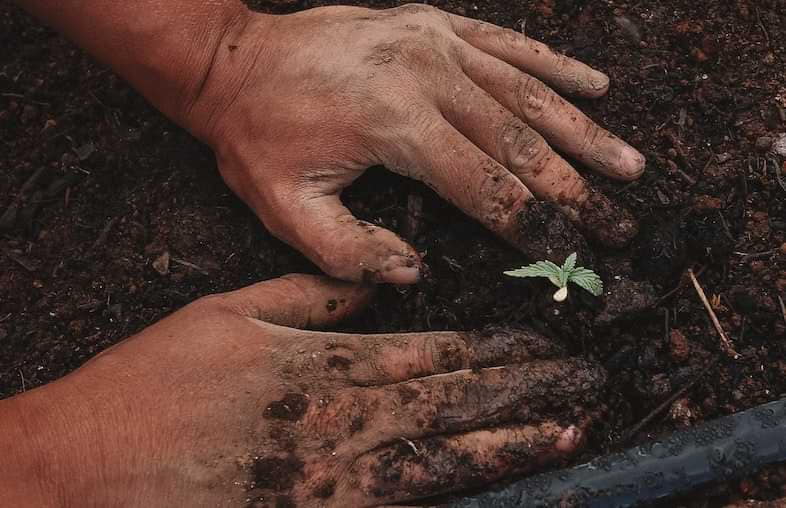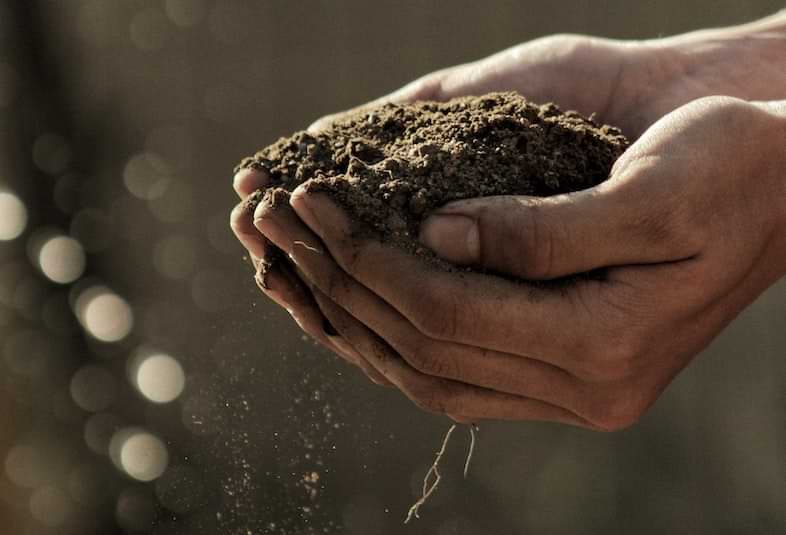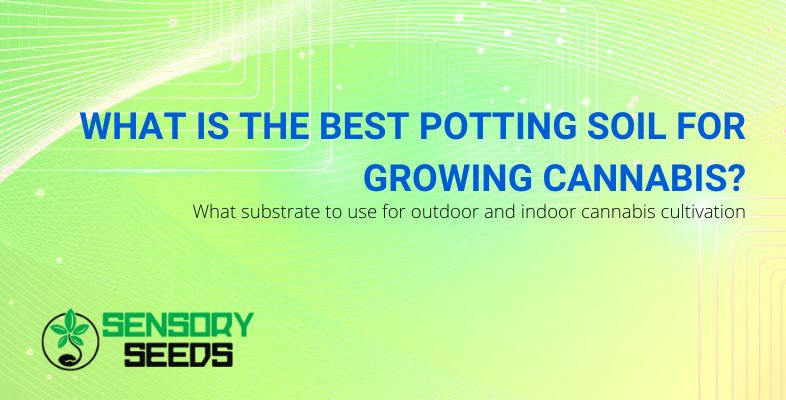Modified on: 21/09/2022
What substrate to use for outdoor and indoor cannabis cultivation
When approaching the world of plants, the importance of the potting soil is often given the right importance and one chooses to buy the first universal potting soil one finds in the shop, only to discover later that each plant requires a substrate with certain properties. To plant marijuana seeds, for example, you need to know the particularities of this plant and its needs: only then can you choose the most suitable soil for its cultivation.
In the next few lines, you will find out which factors are decisive in the choice of substrate for the cannabis plant and which type of soil is best for growing it.
Soil for hemp: which characteristics to take into consideration
In the cultivation of cannabis, which in Italy is only permitted to those with regular authorisation, the type of soil used is of crucial importance as it determines the health and yield of the plants. Before germinating auto-flowering seeds, feminised seeds or fast-flowering seeds, it is, therefore, necessary to take into account not only the genetics of the plants, the climatic conditions and the environment (which can be closed or open), but also certain aspects related to the substrate.
For cannabis to develop and give a good qualitative and quantitative yield, it is essential to consider several aspects of the soil such as:
- the drainage capacity;
- water retention;
- the consistency;
- the pH;
- nutrients.


The drainage capacity of the substrate in which cannabis is grown must be excellent because the formation of surface puddles or the persistence of an excessive amount of water would risk making the plants sick; at the same time, however, the soil should retain the right amount of water, i.e. that which is necessary to guarantee the plants adequate nourishment. In short, the ideal soil for cannabis should combine these two characteristics in a perfect balance.
As far as the consistency is concerned, it should be pointed out that this shrub needs light soil (i.e. not too dense) that allows the roots to have good aeration. We will discuss this aspect in more detail later. Another crucial aspect of the growth and health of cannabis is the pH of the soil, which should settle between 5.8 and 6.5. Obviously, soil pH is susceptible to change and should be monitored regularly (in this regard, the pH of the water used for irrigation mustn’t deviate from that of the soil).
Regarding nutrients, you should know that most potting soils contain a good amount of them; however, after a few weeks of cultivation the plants assimilate them and run out. Therefore, good fertilisation is necessary for their growth to continue under ideal conditions.
Read also: Cannabis as a remedy for chronic pain: all you need to know
Which soil to choose for growing cannabis
As we mentioned earlier, the ideal soil for planting cannabis seeds and growing the plants that result from their germination should have specific characteristics, including a suitable consistency. The most commonly used types of soil for cultivation are:
- the sandy loam;
- the loamy loam;
- the loamy loam;
- the muddy loam.
The former is rather easy to work with and enjoys excellent drainage, but in terms of water retention, it is not the best. Because of this defect, it forces extra watering but is a good option for hemp cultivation because it ensures a good supply of oxygen to the roots. Clay soil, on the other hand, is difficult to work with because it is heavy and has poor drainage. Therefore, although it has excellent water retention and is rich in nutrients, it is not ideal for cannabis cultivation.
Among the ideal soils for this plant is undoubtedly the loamy soil, consisting of a balanced mix of silt, clay and sand. The combination of the typical characteristics of these elements guarantees water retention, drainage, oxygenation and nutrient properties. Muddy soil also lends itself well to hemp cultivation because, in addition to being rich in minerals and nutrients, it retains water well and has a fair drainage capacity.
However, to provide the plants with a habitat conducive to their development, it is important to supplement the soil with the right soil conditioners. Let us find out what they are.


Which soil conditioners to use for hemp
Most commercially available potting soils have a composition that already includes some soil conditioners. However, depending on the type of plant and the location in which it is grown, it is possible to add some to improve the physical characteristics of the substrate.
One of the most widely used, not only for cannabis, is perlite. This material takes the form of white rock granules and serves to increase the drainage properties of the soil as well as lighten it. The ideal percentage of perlite to add to the substrate is approximately 10-15%. Another popular fertiliser for marijuana cultivation is coconut fibre, which is made from the shells of coconuts. In addition to lightening the soil, coconut fibre improves water retention.
Instead of or in conjunction with perlite, vermiculite, another mineral that helps the soil retain water, can be used. Other soil conditioners used in hemp substrates are expanded clay, vermicompost and bat guano.
Read also: Hemp honey: still, many seek a product that does not exist
In conclusion
Preparing the soil for cannabis cultivation is a very important step since the growth and yield of a plant depend on its physical and chemical characteristics. However, perfect, well-maintained soil cannot work wonders if the seeds do not come from quality plants.
As mentioned at the beginning, however, the cultivation of hemp is prohibited by law. Therefore, if you do not have a permit from the competent authorities, you cannot take hemp seeds to germination. However, if you have a passion for this plant, know that it is possible to buy seeds for collecting purposes.
Find out which weed seeds are available in the SensorySeeds online shop: from autoflowering seeds to feminized or fast growing weed seeds, there’s something for any taste!
We are waiting for you on SensorySeeds.com!









